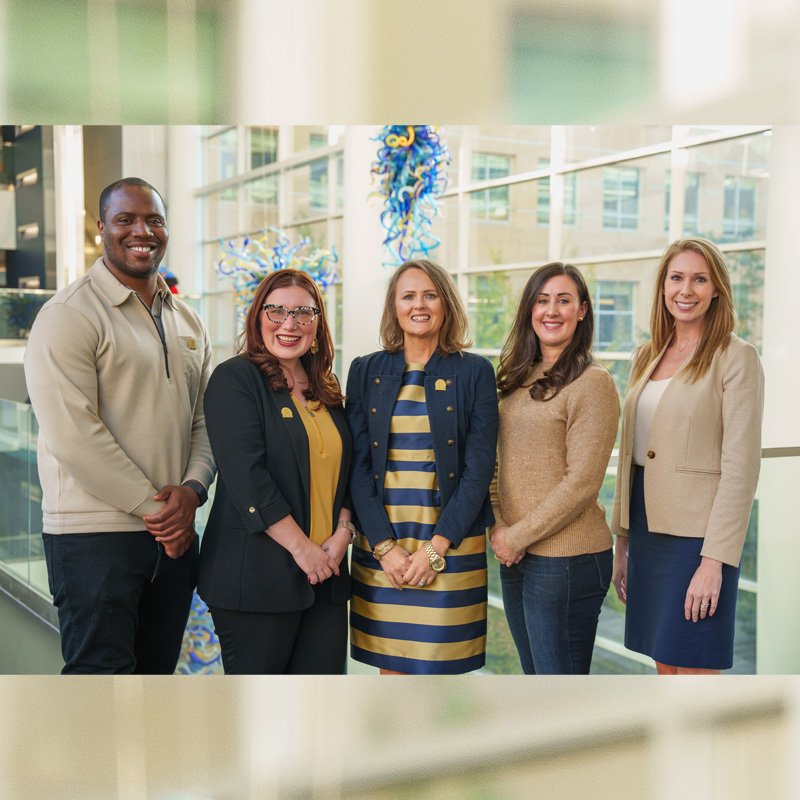On November 21, six Scheller College of Business alumni returned to campus to be honored in the Georgia Tech Alumni Association’s annual “40 Under 40” awards. The visit celebrated their nominations with a busy campus engagement day that included lunch, a leadership tailgate, and a Georgia Tech football game.
We caught up with these influential alumni to get to know more about the innovative and diverse ways they approach their careers and the impact they have in communities across the country for good.

Bethany Davis, MBA and MSAE ‘11
Head of Airplane Systems
JetZero
Current City: Delray Beach, Florida
Who was the first person you told about your “40 Under 40” nomination?
I told my parents.
Can you share your journey from interning at Lockheed Martin to working at Gulfstream in Savannah for 10 years?
My journey began as a flying instructor, and I went on to fly jets. This sparked my interest in aircraft design and engineering. During my time at Lockheed Martin, I realized the potential for technological advancements in aviation, especially after experiencing outdated radio communications over the North Atlantic. This passion for improving the flying experience led me to Gulfstream in Savannah, where I spent 10 years working on cutting-edge aviation technologies and enhancing flight operations.
What was your first project at Gulfstream?
My first role at Gulfstream was sales engineering, where I partnered with sales teams to address technical questions about jet performance and capabilities. This role allowed me to understand the market and customer needs, and it set the foundation for my career in aviation technology and innovation.
What motivated you to transition from a corporate role to an entrepreneurial venture with JetZero?
After 10 years at Gulfstream, I was inspired to pursue something more entrepreneurial. A conversation with Bryan Moss introduced me to an innovative project involving a blended wing design, which significantly improves fuel efficiency. The potential of this technology captivated me, leading me to join JetZero in September 2021 as the fourth full-time employee. Initially focused on the flight deck, my role quickly expanded to include supply chain management and overseeing various engineering teams. This transition allowed me to contribute to groundbreaking advancements in aviation technology.
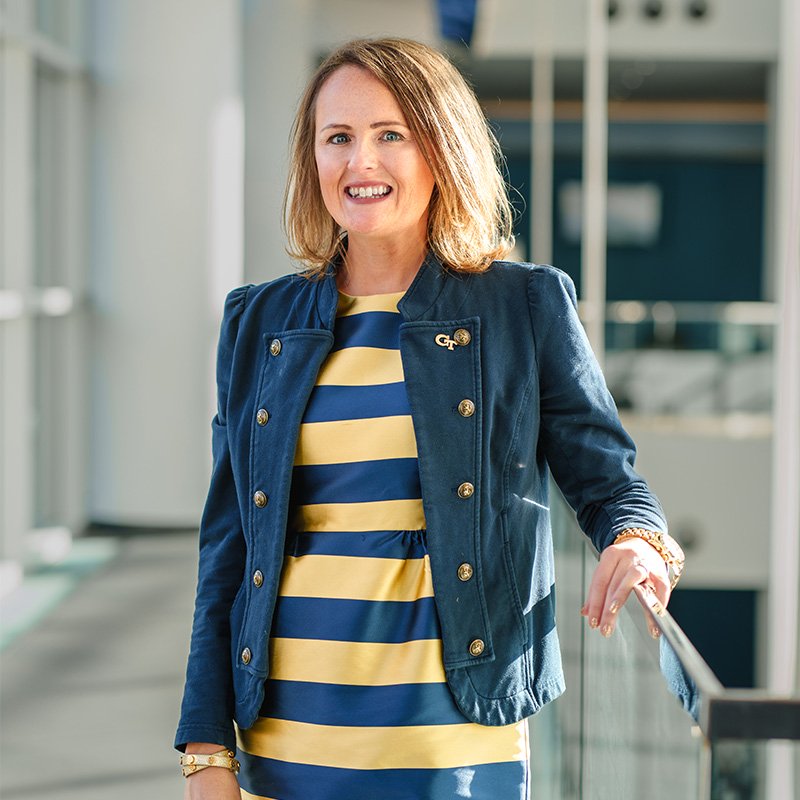
Laura Gravesen, Full-time MBA ‘09
Associate Director for Policy, Office of Public Health Data, Surveillance, and Technology
Centers for Disease Control
Current City: Atlanta, Georgia
Who was the first person you told about your “40 Under 40” nomination?
I told my husband and kids.
How did your bachelor’s in industrial design pair with your MBA to shape your career path, especially during the economic downturn of 2009?
Combining my bachelor's in industrial design with an MBA was pivotal. Despite the challenging job market, I realized the importance of proactively creating opportunities. Instead of following traditional career paths, I focused on niche areas like design and sustainability. This led me to an internship at the CDC's sustainability office, which eventually transitioned into a full-time federal position, thanks to a pathways program. This unique blend of skills and experiences allowed me to thrive in a tough economic climate.
Can you describe your experience working at the CDC and the variety of roles you held over 15 years?
My experience at the CDC was quite different from my MBA peers who received big offers and sign-on bonuses. I started at the ground level, completing a 600-hour internship before being hired into a permanent position. I joined the newly created sustainability group as the second hire and helped grow the team and its initiatives. I served in detail to the White House Council on Environmental Quality where I provided guidance on implementing executive orders across various departments. This role involved extensive communication and policy work, which sparked my interest in policy and led me to roles in change management and appropriations. When I returned, I helped to lead a reorganization of offices responsible for safety, buildings and facilities and logistics management.
For several years I served in budget policy, managing CDC’s Congressional Budget Justification and working to obtain appropriations for large capital projects. During the COVID-19 response, I led congressional relations with appropriators and served on the Data, Analytics and Visualization Task force. For the past couple of years, I served as the legislative affairs lead for public health infrastructure.
What’s next?
This fall, I transitioned to the role of associate director for policy in the Office of Public Health, Data Surveillance, and Technology at the CDC. I'm focused on improving the speed and quality of information exchange between the healthcare sector and public health to enhance overall community health. This new leadership position is exciting, offering opportunities to delve into technical aspects and drive impactful change. I see great potential in this role and am enthusiastic about continuing this work.
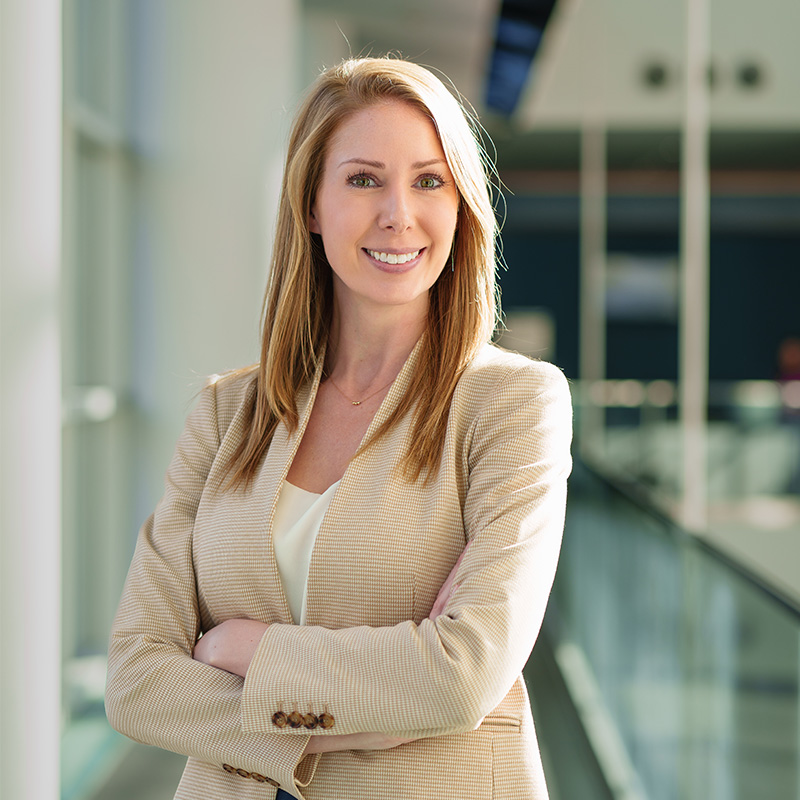
Kristyn Long, B.S. ‘12
Executive Counsel
Office of Governor Brian P. Kemp
Current City: Ball Ground, Georgia
Who was the first person you told about your “40 Under 40” nomination?
I told my husband first, and then my parents.
What led you to shift your career aspirations from dentistry to law, and eventually to government work?
When I first came to Georgia Tech, I wanted to be a dentist and get a degree in management so that I could run a successful practice one day. I soon realized that I didn't enjoy science classes as much as I thought, but I loved my business management classes. I later decided I wanted to go to law school, encouraged by others who noted my aptitude for arguing and originally thought I would pursue a career in entertainment law. However, during law school, I got involved in the public defender's program and discovered a passion for public service. I was grateful when I got the opportunity to continue serving the public through working for the governor.
What was it like transitioning from a small law firm in Cherokee County to a role in state government?
Transitioning from a small firm in Cherokee County to the Governor’s office was a valuable learning experience. At the firm, I gained broad experience in civil litigation, probate work, estate planning, and corporate law. A friend from law school introduced me to an opportunity in the Governor's office, which I saw as a once-in-a-lifetime chance to serve the community and state. I started there in February 2020, and the experience has broadened my perspective and legal skills, including the legislative and bill review processes. I get to work on new and topical issues every day, which makes our work not only meaningful for the state, but also exciting.
Can you describe your experience helping to write executive orders during your time in the government office?
I started in the Governor's office just before Covid-19 hit. One of my main tasks was helping draft the governor’s executive orders during the states of emergency, which lasted nearly three years. This involved creating rules for various sectors, such as restaurants and movie theaters, in coordination with the Department of Public Health and other stakeholders. It was a unique and meaningful experience to contribute to the State's response and see the direct impact of our work on businesses and communities.
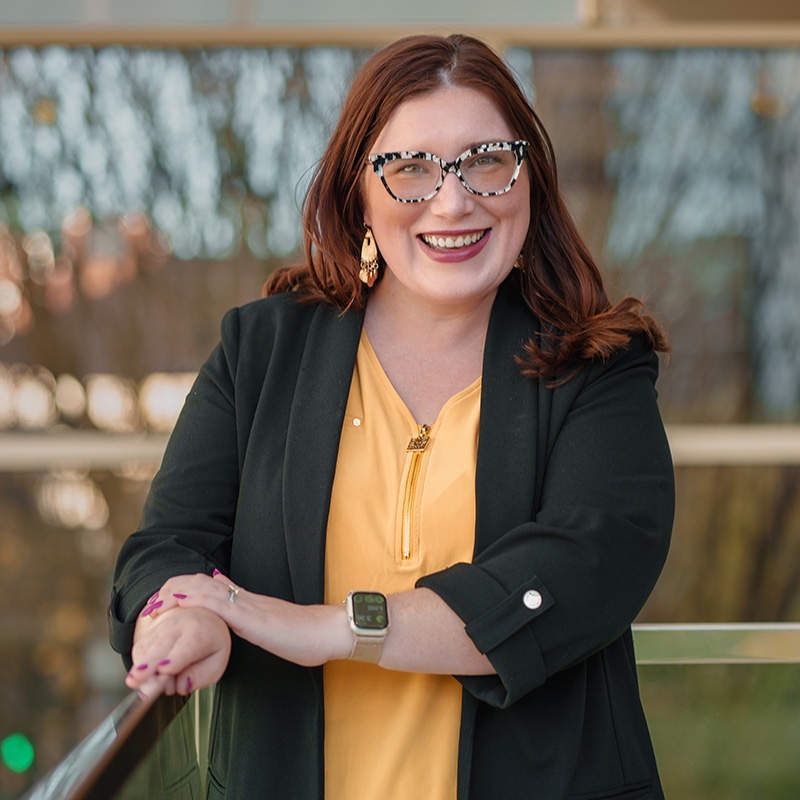
Briana Stenard, Ph.D. ‘09
Associate Professor of Management and Entrepreneurship
Mercer University, Stetson-Hatcher School of Business
Current City: Atlanta, Georgia
Who was the first person you told about your “40 Under 40” nomination?
My husband nominated me for the award. He was the first person I told, and then very soon afterwards was my parents. I could not have done my Ph.D. without them.
What was the most impactful piece of advice you received from Peter Thompson on your dissertation committee?
During my program, I struggled with imposter syndrome, but advice from Peter Thompson helped me overcome it. He emphasized that being the smartest person in the room isn't the goal; instead, tenacity, hard work, and passion are what truly matter. His encouragement made me realize that these qualities were more important than just being smart. This perspective helped me thrive in my research and ultimately led me to my dream job. I'm grateful for the experiences and support that guided me through the program.
How did meeting your husband during the Ph.D. program influence your journey?
Funny enough, we met because we were both in the TI:GER program. I was a research assistant, and he was doing the program as part of his MBA. We started dating, and we got married a week after I defended my dissertation.
When I say Georgia Tech changed my life in many ways, it really did. So many major life events happened here. A lot of people tell you not to date during grad school, but it was wonderful having someone else in grad school that understood my schedule and supported me to graduation.
We continue to support each other as we work together to create an original learning technology for entrepreneurship, called Innovation Exercises. I take the exercises that I do in-person in the classroom, and we put them online to improve online entrepreneurship classroom engagement. Each exercise is created with the students in mind.
How did this real-life entrepreneurship experience work and what have you learned?
During the pandemic, the shift to online learning posed a challenge for experiential entrepreneurship classes, which rely heavily on discussion and engagement. By adapting in-person activities for the online environment, the experience maintained its interactive nature. This approach was well-received by students, who appreciated the engaging online activities over static discussion boards.
The success of these methods was recognized by the United States Association for Small Business and Entrepreneurship, earning awards and adoption by other educators. I think this experience highlights the importance of adaptability and innovation in teaching methods.
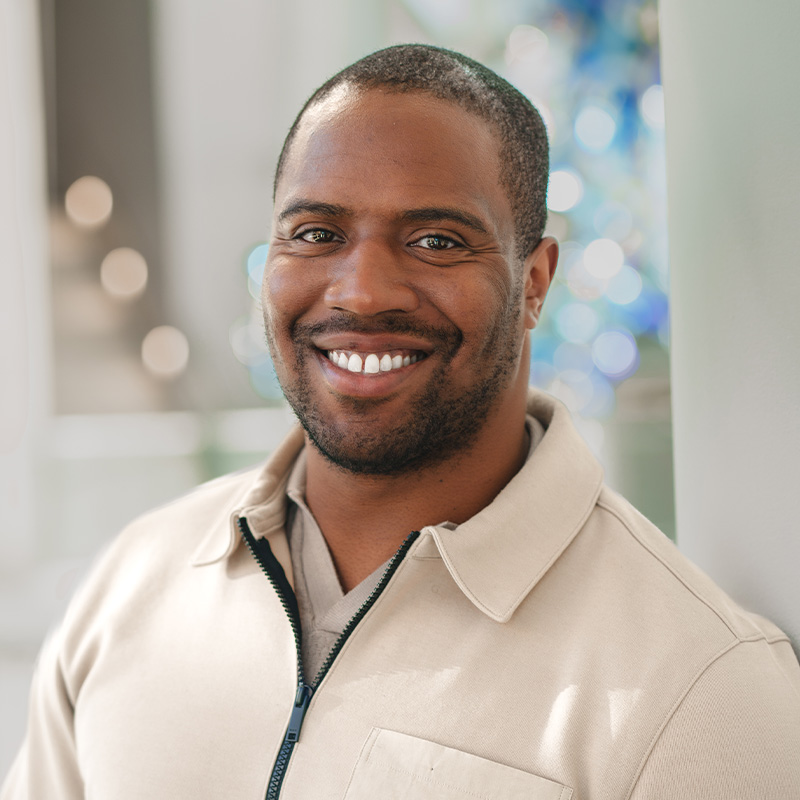
Osahon Tongo, B.S. Management ‘10
Producer, Director
National Football League
Current City: Los Angeles, California
How did your nomination for “40 Under 40” come about?
Things started to come together over the last few years. I had several Omega Psi Phi chapter brothers reach out and nominate me. I won an Emmy and the Netflix movie, “They Cloned Tyrone” premiered in 2023. It was like a perfect storm.
How did you foster your natural talent for creative endeavors at Georgia Tech?
I’ve always wanted to tell stories. My parents, who immigrated from Nigeria, encouraged me to excel in math and science, and I participated in various activities like chess club and piano. In high school, I played football and attended engineering camps during the summer. I came to college on a football scholarship and started filming skits with friends, teaching myself to edit and posting videos online. This led to participating in the Campus Movie Fest, where I shot a short documentary film about the football team that inspired leadership to develop an internship program in the athletic association and created more career opportunities for athletes. I learned that when I tell stories, it can cause a ripple effect for people and enact social change.
Tell me about a time when you showed perseverance off the football field and how it affected your career journey?
After winning the ACC Championship in 2009, I had a torn labrum and realized I needed to pivot to other options outside of football for my future. As I prepared to graduate, I attended a career fair and met Scott Safon, then CMO of CNN. His openness and energy inspired me, and I persistently contacted his office until I secured a meeting. Despite initial setbacks, my determination paid off when I visited Turner headquarters, met with Scott, and eventually landed the job.
What have you been up to since graduating from film school and moving back to L.A.?
I’ve always had this dogged determination to make a difference in the community around me and excel at whatever I do. When I moved to LA, I decided to coach football at Crenshaw High School and dive into the artist community, creating mental health awareness events at USC. It was all about making an impact because life is short, you know? One of my best friends passed away suddenly in 2011, just a year after we graduated. That loss really hit me and lit a fire under me. I realized we have to make the most of our time, blaze a trail, and make the world better in the process.
